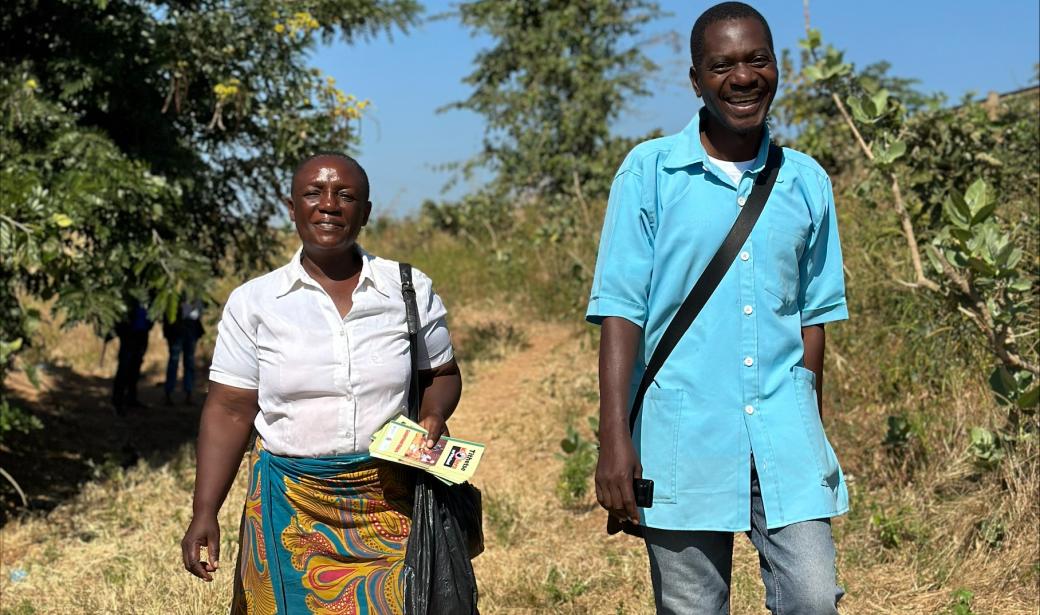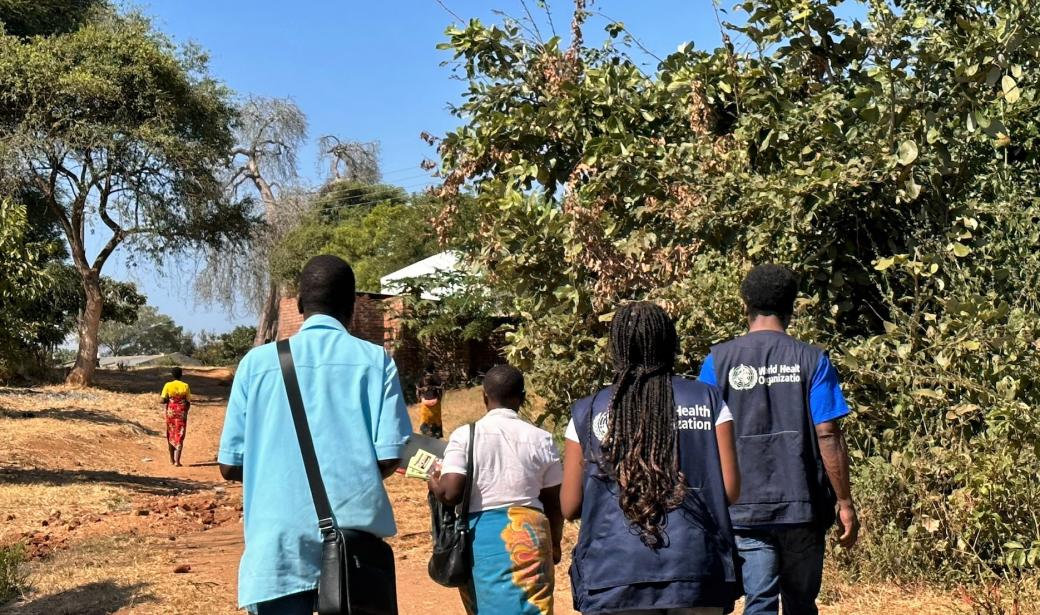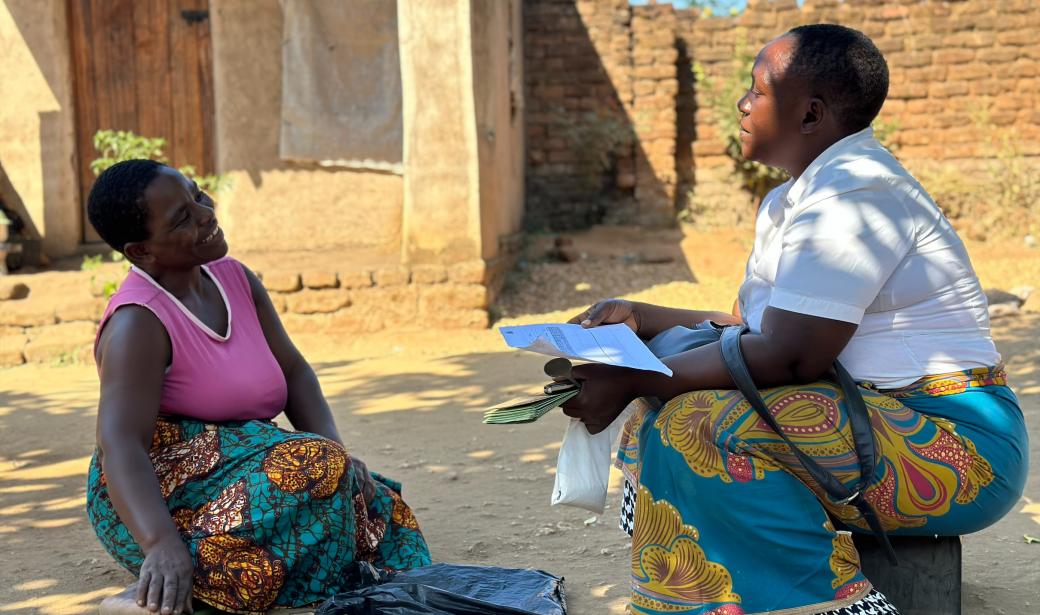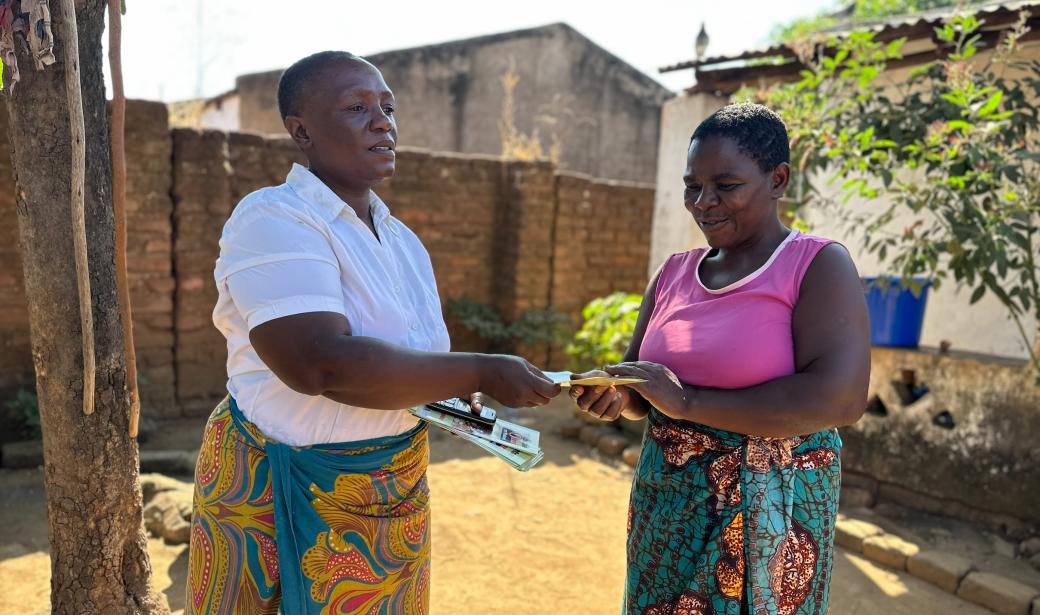Lilongwe - Door to door, Chrissy Dzimkambani is set to walk at least five kilometers on this day to visit 50 households in her village. “I have lost a good number of people I grew up with in this community because of cholera,” states the village health volunteer in a sad tone as she tries to hold back tears. “It is for this reason that I dedicated myself to this role of sensitizing my community on how they can protect themselves against cholera. I do not want to see any death especially of someone I know.”
Chrissy is a well know village health volunteer in Phalula village in Balaka, a cholera hotspot district in the southern region of Malawi. Since the beginning of the cholera outbreak that started in March 2022, she has served as a volunteer supporting the outbreak response efforts. She is among thousands of community health volunteers that have benefited from World Health Organization (WHO)-supported training on cholera risk communication and community engagement.
“We have trained community health workers and volunteers to do targeted interventions at household level for rapid response to cholera,” says Dr Nelly Jepkonga Yatichi, WHO Incident Manager for cholera outbreak response in Malawi.
“With the country recording small number of cholera cases, it is important to modify our strategy to spatial targeting of case households and their radius. This practice is efficient in ensuring we stop further transmission of cholera and would potentially get us to zero cases and deaths.”
Chrissy narrates that at the peak of the outbreak in her area, they recorded over 20 cholera cases. In comparison, only one person has had confirmed cholera in two months since the implementation of door-to-door strategy.
“The targeted door to door strategy is yielding positive impact to the cholera outbreak response in our communities and evidently saving lives,” she says.
Communications Officer
WHO Malawi
email: mukhunav [at] who.int (mukhunav[at]who[dot]int)
Tel: +265 999 375 094






